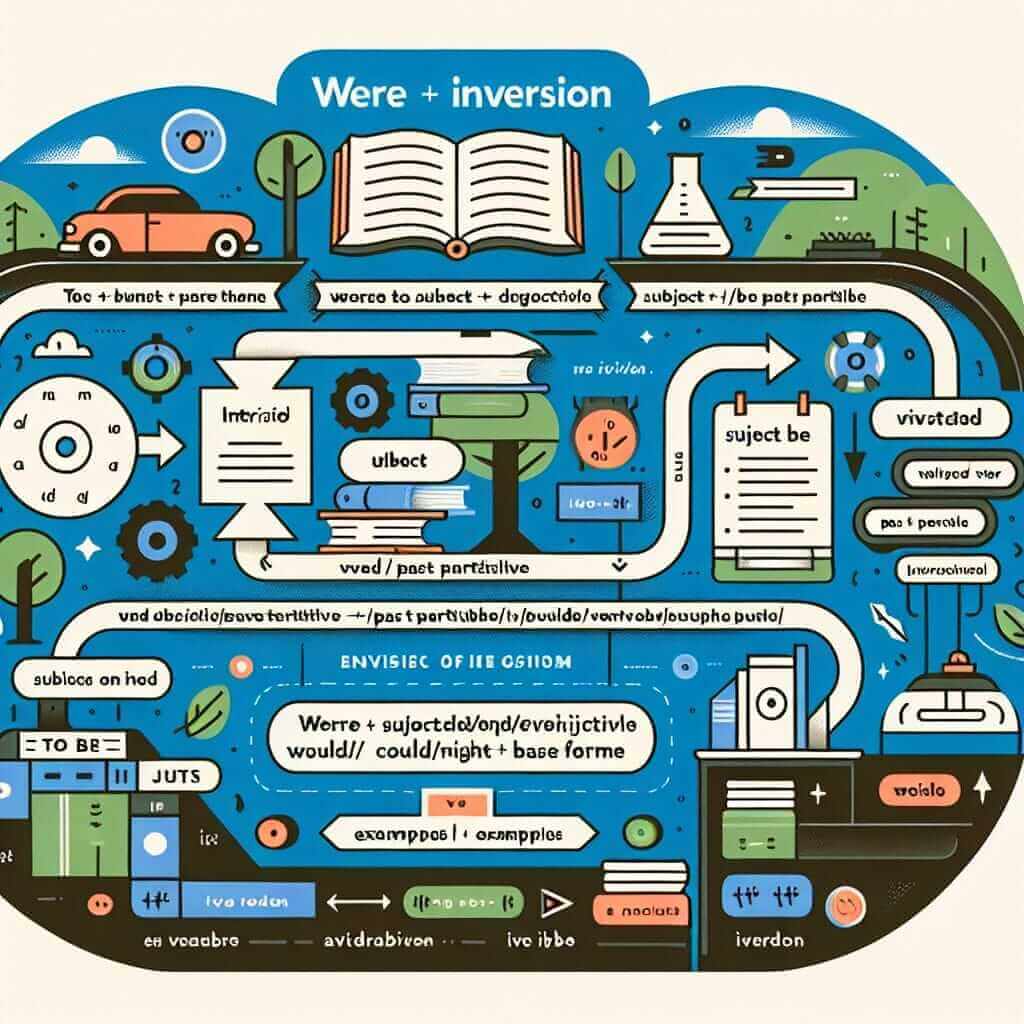In the realm of advanced English grammar, inversion can be a powerful tool to elevate your writing and speaking, especially in the context of the IELTS exam. One such inversion structure that often leaves learners perplexed is “Were it essential, I would prioritize it.” This construction, while seemingly complex, can significantly enhance your ability to express hypothetical situations and nuanced opinions effectively.
Let’s examine a few examples of how this inversion structure might appear in different sections of the IELTS:
Speaking Part 3:
Examiner: “Do you think governments should invest more in renewable energy?”
Candidate: “Absolutely. Were it not for the pressing need to combat climate change, I might say otherwise. However, the urgency of the situation demands immediate action.”
Writing Task 2:
Prompt: “Some people believe that space exploration is a waste of resources. Discuss both views and give your opinion.”
Response: “While it’s true that addressing immediate concerns like poverty and disease is paramount, were we to completely disregard space exploration, we risk stifling scientific progress and potentially missing out on crucial discoveries.”
In each example, the inverted structure adds a layer of formality and sophistication to the language, showcasing a strong command of grammatical structures, a key factor in achieving a high IELTS band score.
Deconstructing Inversion: Meaning and Frequency
Inversion, in essence, involves a reversal of the typical subject-verb order in a sentence. This inversion often signals a conditional or hypothetical scenario. The phrase “Were it essential…” is a prime example of this.
-
Meaning: It essentially conveys the same meaning as “If it were essential…” However, the inverted form carries a more formal and hypothetical tone, making it suitable for situations where you want to express a condition that is unlikely or contrary to the current reality.
-
Frequency in IELTS: While not as common as basic grammatical structures, inversion is certainly tested in the IELTS, particularly in the Writing and Speaking sections where a higher level of language proficiency is expected for higher band scores.
Mastering the Structure: Formula and Application
Let’s break down the formula for this specific inversion:
“Were + Subject + (to be) + Adjective/Past Participle, Subject + would/could/might + Verb (base form)”
Application:
-
Writing Task 2: This structure is particularly useful in opinion and discussion essays when you want to acknowledge an opposing viewpoint while presenting a counter-argument.
- Example: “Were the government to solely focus on economic growth, social welfare programs might suffer.”
-
Speaking Part 3: In more analytical speaking tasks, this inversion can showcase your ability to express complex ideas with fluency and accuracy.
- Example: “Were it possible to predict natural disasters with absolute certainty, countless lives could be saved.”

From Structure to Success: IELTS Examples
Writing Task 2 – Opinion Essay:
Prompt: “Some believe that technology has made us less social. Do you agree or disagree?”
Response: “While it’s undeniable that excessive screen time can lead to social isolation, were we to dismiss technology entirely, we would be neglecting its immense potential to connect people across geographical boundaries.”
Speaking Part 3 – Two-Part Question:
Examiner: “What are the benefits of learning a second language, and do you think all children should be taught a second language from a young age?”
Candidate: “Aside from the obvious cognitive advantages, learning a second language fosters cross-cultural understanding and empathy. Were it standard practice to introduce a second language in early education, I believe we would see a more tolerant and interconnected world.”
Elevating Your Language: Tips for Higher Bands
- Variety is Key: Don’t overuse inversion. Sprinkle it judiciously in your writing and speaking to demonstrate a wider grammatical range.
- Context Matters: Ensure the use of inversion aligns with the tone and formality of the task.
- Practice Makes Perfect: Familiarize yourself with various inversion structures and practice incorporating them into your writing and speaking practice sessions.
Common Pitfalls and How to Avoid Them
-
Incorrect Verb Form: Remember to use the base form of the verb after the modal verb (would/could/might) in the inverted clause.
- Incorrect: “Were it to be possible, I will travel the world.”
- Correct: “Were it to be possible, I would travel the world.”
-
Overuse: Using inversion too frequently can make your language sound forced and unnatural. Employ it strategically for emphasis and variety.
-
Informal Context: Inversion is generally more formal. Avoid using it in informal writing tasks like informal letters.
Conclusion
Mastering inversion, particularly structures like “Were it essential, I would prioritize it,” can significantly enhance your grammatical range and sophistication in the IELTS exam. By understanding its nuances, practicing its application, and avoiding common pitfalls, you can confidently wield this powerful grammatical tool to express complex ideas with clarity and finesse, ultimately boosting your chances of achieving your desired band score.